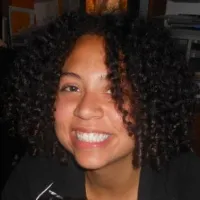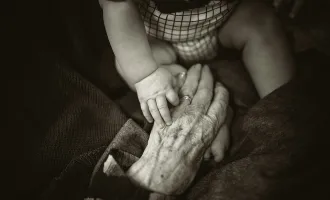Program Eases Mysterious Cancer-Related Fatigue
Two UCSF clinical nurses are breaking new ground in treating a poorly-understood condition afflicting cancer patients, and their efforts are gaining traction and recognition.
Cancer-related fatigue (CRF) continues to plague patients and perplex the medical community. The precise physiologic mechanism remains a mystery.
It’s defined as “a distressing, persistent, subjective sense of physical, emotional, and/or cognitive tiredness or exhaustion related to cancer or cancer treatment that is not proportional to recent activity and that significantly interferes with usual functioning.”
Unlike normal fatigue, CRF is chronic and not relieved by rest.
The incidence of CRF is also difficult to determine as the symptoms are challenging to measure and track. It is estimated that CRF affects 15 to 90% of cancer patients, a third of whom will continue to experience fatigue for years post-treatment.
The new Integrative Patient Events Wellness Program at the UCSF Medical Center Adult Inpatient Hematology, Oncology, & Bone Marrow Transplant (BMT) unit will aim to reduce cancer-related fatigue and improve quality of life through a variety of patient-centered activities encompassing the improvement of both physical and emotional well-being. The program was designed and will be directed by Allan Dumlao RN, MS and Jennifer Bordean RN, RHIA, OCN, two clinical nurses who work in the BMT unit.
“We want to expand the idea of not only providing medical care to patients, but easing patients’ burdens overall,” Dumlao said. Their efforts have resulted in a $20,000 Ron Rankin Booster Grant.
Proposed treatments for CRF are multifactorial and not currently standardized. A typical regimen includes a combination of treatments. Any physiologic causes of fatigue, such as anemia, are combated with medical therapy while other factors thought to contribute to CRF are targeted with cognitive-behavioral therapy, moderate exercise, and mind-body therapies like yoga.
With the support of the Nursing Unit Council and Patient & Family Services, Bordean started holding patient events about two years ago to combat CRF in patients on the BMT unit.
Thanks to multiple volunteers, including patients, nurses, nurse practitioners, physical therapists, occupational therapists, Music is Good Medicine, and Art for Recovery, the BMT unit was able to expand their events from only an occasional movie and music day to five to seven days a weeks of various activities.
After hearing anecdotal data from many patients about the efficacy of these programs, Dumlao and Bordean had the idea of expanding these sessions into a multifaceted program featuring a mixture of exercise, mindfulness, yoga, art and music therapy, and support groups for the patients in the unit.
“Going through the diagnosis of cancer can be devastating,” Dumlao said in an interview. “Patients deal with a lot of emotion and the side effects of both the disease and treatment. They often have to stay on the floor for a long time and a program for CRF will offer them a sense of hope.”
Soon after Dumlao and Bordean began formulating their ideas for the new wellness program, a funding opportunity appeared in the form of a global e-mail announcing the opening of applications for the Ron Rankin Booster Grant.
According to its webpage, the Ron Rankin Booster grant is offered by UCSF Partners in Care and provides “one-time ‘start-up’ funding for a new or experimental program offering patient and/or family benefit.”
After a lengthy process formulating their exact vision for the wellness program, Dumlao and Bordean were ecstatic to learn this past January that the BMT unit had been awarded the grant.
As far as Dumlao knows, this will be the first inpatient wellness program specifically targeted at patients with CRF.
“There is research in solid oncology regarding the benefits of integrative wellness therapies for improvement of CRF and [quality of life],” said Bordean. “But there is scarce to no research in our hematological and BMT population. We hope to be on the forefront of innovation and research for this patient population.”
The BMT unit has already begun preparing for the new program. New expanded floor plans will include a dedicated space for program activities. All staff members are on board and will be involved in running planned events.
Dumlao and Bordean’s vision is to create the new program, gather data on its effectiveness, and share their results nationally.
“We are so very grateful for all of the dedicated and caring individuals who support and lead our program events, and to UCSF Partners in Care and Ron Rankin for sponsoring our program,” said Bordean.



